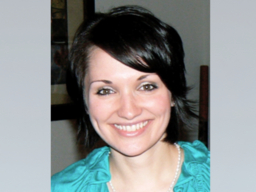Romy Hübler's Final Examination
The public is welcome to observe
Location
On Campus : Public Policy Building - 107
Date & Time
April 14, 2015, 10:00 am – 11:00 am
Description
From Isolation to Participation: Engaged Graduate Education
The civil rights era sparked renewed calls to embrace the public mission of higher education (Butin, 2005). Service-learning and civic engagement initiatives now often constitute an aspect of undergraduate students’ curriculum or co-curriculum (O’Meara, 2011b). Similar initiatives in graduate education have yet to capture the imagination of a substantial number of graduate educators (Gilvin, 2012). This study explores the educational experiences of University of Maryland, Baltimore County (UMBC) graduate students with engaged pedagogies, practices, and scholarship in graduate school. Drawing upon the principles and commitments of participatory action research and ethnography, I worked with forty-one participants from seventeen different graduate programs spanning the three UMBC colleges in an interactive, reflexive, and participatory manner to collectively problem-pose, reflect on experiences, and interpret collected texts.
The UMBC graduate students who participated in this project described their graduate education as an isolating experience, frequently using the metaphors of ‘silos’ and ‘bubbles.’ They reported having experienced a stark emphasis on disciplinary teaching, a binary between ‘experts’ and ‘citizens,’ a separation between theory and practice, and a reward structure that legitimizes these isolating practices.
Participants want an education that understands engaged and reflexive educational experiences as essential attributes of human learning. They identified the following drivers behind this expectation: being marginalized or encountering members of affiliated groups being marginalized; being socialized to value engagement and co-creation by social institutions, such as the family, church, and school; and having a desire for meaningful and holistic lives. Many participants sought opportunities or engagement during graduate school that reflected their values of interdisciplinary work, collaboration, and integrative approaches to theory and action. They found some limited opportunities in coursework, research, and institutional programs and initiatives. Participants also co-created engaged work in the co-curricular sphere.
When invited to imagine ways to reconstruct graduate education, participants shared their hopes, visions, and aspirations for an education that incorporates opportunities for collaborative and interdisciplinary learning and scholarship that integrates theory and practice and encourages work with individuals and groups beyond the academy to directly impact pressing societal issues. Such an education, they hope, will provide them with the experiences necessary for a broad range of careers and active participation in society.
Dissertation Committee:
Beverly Bickel, Chair
Joby Taylor, Co-Chair
Scott Casper
David Hoffman
Timothy Eatman
KerryAnn O’Meara
